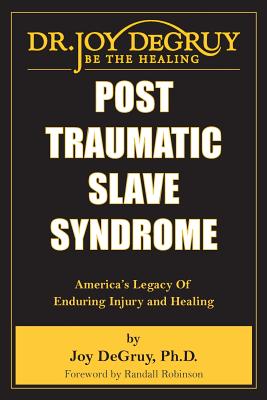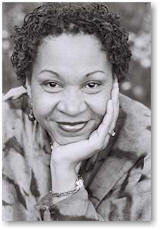Book Review: Post Traumatic Slave Syndrome: America’s Legacy of Enduring Injury and Healing
Book Reviewed by Kam Williams
’When African-Americans accept the deprecating accounts and images portrayed by the media, literature, music and the arts as a true mirror of themselves, we are actually allowing ourselves to be socialized by a racist society.
Evidence of racist socialization can be readily seen when African-American children limit their aspirations’ It can be seen when we use the accumulation of material things as the measure of self-worth and success.
So, in spite of all our forbears who worked to survive and gain their freedom; in spite of the efforts of all those who fought for civil rights’ we are continually being socialized by this society to undervalue ourselves, to undermine our own efforts and, ultimately, to hate ourselves. We are raising our children only to watch America tear them down.
Today, the legacy of slavery remains etched in our souls. Understanding the role our past plays in our present attitudes, outlooks, mindsets and circumstances is important if we are to free ourselves from the spiritual, mental and emotional shackles that bind us today, shackles that limit what we believe we can be, do and have. Understanding the Post-Traumatic Slave Syndrome plays in our evolution may be the key that helps to set us on the path to well-being.’
’Excerpted from Chapter 5, Slavery’s Children
|
|
You know an experience has been transformational when it repeatedly brings you to the brink of tears, and this is exactly what transpired while poring over the pages of Post-Traumatic Slave Syndrome: America’s Legacy of Enduring Injury and Healing. For me, reading this sensitive exploration of the African-American psyche was the emotional equivalent of an all-day session on a shrink’s couch, as I felt many pangs of recognition as layer after layer of deep-seated traumas were diagnosed and discussed, not as personal neuroses, but as the plausible, predictable, and shared response of many blacks to the predicament of being raised in a racist society.
The author, Joy DeGruy Leary, Ph.D. is nothing short of brilliant in the way in which she approaches the subject, prodding you to place present-day behaviors in a proper historical context. Plus, Dr. Leary, a Professor of Social Work at Portland State University, draws on her 18 years of practical work in the field dedicated to mental health and cultural resilience. For it is her contention that the subjugation of African-Americans did not end with slavery and that freedom only meant the master’s whip was replaced by the illusion of equality and opportunity.
This was witnessed in the Jim Crow laws, lynchings, de facto segregation, grandfather clauses, poll taxes, restrictive covenants, redlining, gentrification and other assorted measures which arose to maintain the status quo. In reaction to the ongoing oppression, black people developed an identifiable set of survival skills, some of which were self-destructive.
And it is these harmful symptoms which Dr. Leary is interested in eliminating in order to put her people on the road to healing.
So, after initially expressing the notion that the dysfunction found in African-Americans is nothing to be ashamed of, she exhibits all the care and concern of a doting parent in discussing the introspective path to rebuilding one’s self-esteem. Easier said than done, this involves many steps, perhaps the most difficult being a long, hard look in the mirror to know oneself. For only after confronting and exorcising some societal demons, will one be well enough to interrelate with one’s community from a fresh perspective, as a tender person, fully-informed, considerate and uncompromisingly honest.
Required reading, or should I say therapy, for every African-American.



